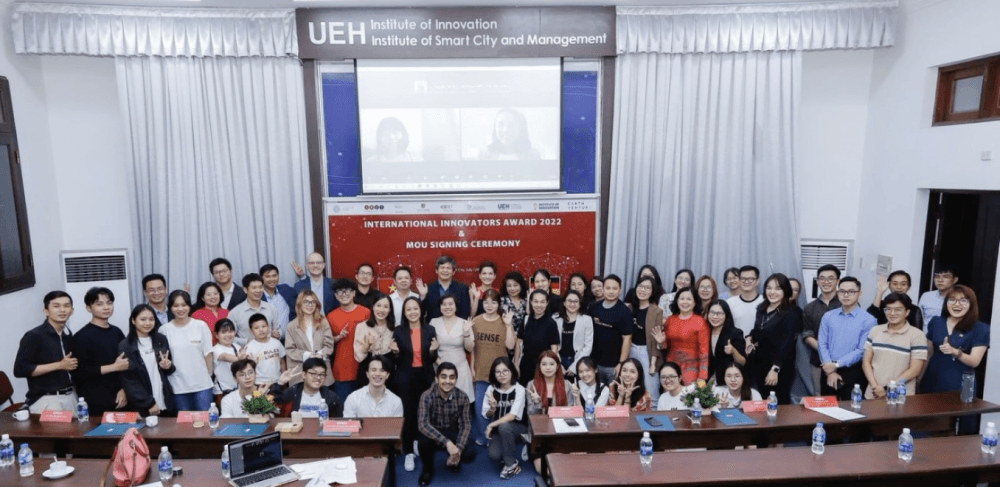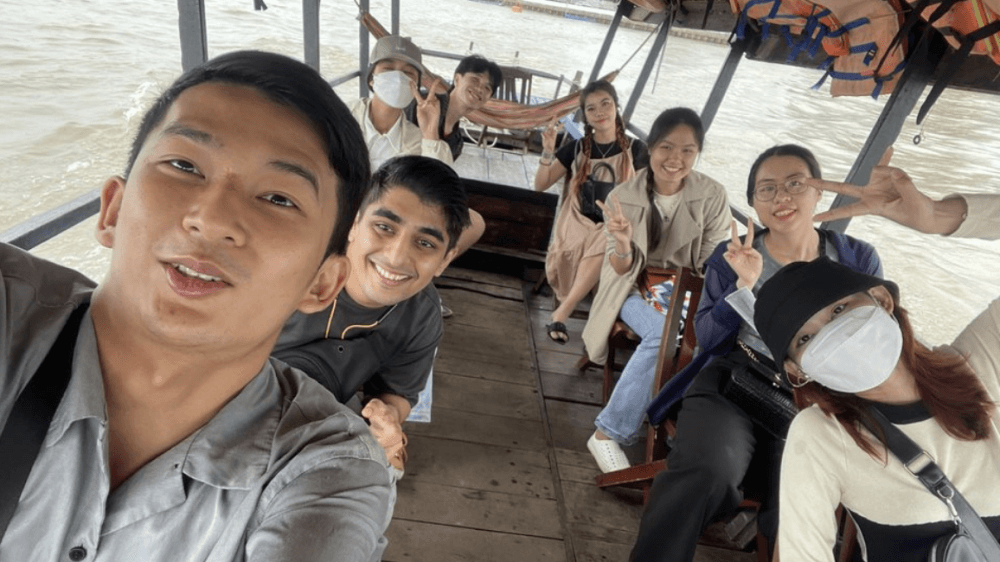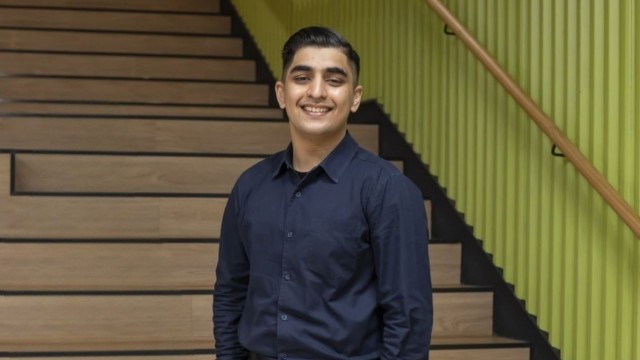My 360˚ Learning Experience With a Student-Run Venture Fund and a Start-Up Incubator
Abdullah's fascination with Southeast Asia's digital economy started in 2019 at a career exposure conference. Joining Protégé Ventures, he evaluated mature startups. His internship at UEH-UII focused on supporting early-stage startups through grants and networking. This experience broadened his understanding of startup dynamics and Southeast Asia's growth potential, advocating GII as transformative for those seeking insights and personal growth abroad.
Working in Southeast Asia has been something that I wanted to do since 2019. It all started with a conference that I attended on career exposure in the region. As I educated myself more and did coursework relating to the region, I was completely sold on the Southeast Asia growth story and realised its digital economy would be a rapidly growing sector. The emergence of its start-up ecosystem was of particular interest to me.
My interest in the start-up ecosystem was also one of the reasons I joined Protégé Ventures (PV), Southeast Asia’s first and only student venture fund aimed at grooming the next generation of VC talent through investing in and supporting student-led start-ups.
However, I knew that reading reports and watching news broadcasts would never be sufficient. I had to see it with my own eyes, to experience the energy of the region and relate to what’s happening on the ground.
Hence, I applied for the Global Innovation Immersion (GII) programme offered at SMU’s Institute of Innovation and Entrepreneurship (SMU IIE), and completed a three-month overseas onsite internship at the start-up incubator of the University of Economics Ho Chi Minh City Institute of Innovation (UEH-UII).
My role at the incubator
An incubator helps build the capacity of start-ups at their early stages. For my role, I was looking at ways to help start-ups generate funding for their business plans. As such, I was involved in the development of an initial proposal for a grantmaking programme and angel network for the start-ups. After several internal discussions with my supervisors, I presented my proposal to the Board of Directors of UEH-UII.

The process of developing the proposal involved quite a fair bit of groundwork and preparation as I had to convey to the Board of Directors a strong rationale behind the financial support for start-ups, the role of the Institute in the grantmaking programme and angel network, and share an overview of what other incubators or accelerators are doing. I also had to outline the processes of each proposed plan, bring up case studies, evaluate the costs and benefits for both the start-ups and incubator as well as propose a preliminary action plan within a specific timeline.
Additionally, I was tasked to help create a fundraising guide for the start-ups, a list of investors currently active in Vietnam, and a content framework for workshops aimed at empowering student founders and young entrepreneurs with knowledge of fundraising fundamentals. Last but not least, I also conducted in-depth market research to gain consumer insights about the Mom & Baby industry in Vietnam for one of the incubated start-ups.
How was working in an incubator different from Protégé Ventures
At PV, I was used to seeing more developed start-ups with rising traction, i.e., a developed product, a growing user or customer base, and an operational business model. When start-ups reach this stage of accelerating growth, they start thinking about the need to hire more employees, make product improvements, or expand to other segments – and thus fundraising. I analysed start-ups, met the founders and conducted research with the goal to convince the investment committee to invest in the shortlisted start-ups.
At UEH-UII, the start-ups were building their foundations. This means setting up OKRs (objectives and key results), customer/user discovery, refining their products for identified use cases, market research, exploring different business models or monetisation strategies and finding business partners. We helped them by offering workshops, connecting them with subject experts or business partners, and giving them access to the UEH-UII co-working space. Overall, it was about understanding their needs, providing close support, and educating them on best practices, which included fundraising.
Beyond start-ups, there was a greater focus on community building and partnerships at UEH-UII. Activities such as start-up competitions, panel discussions, market exploration visits, networking events and workshops involving external partners were organised. The exposure to the dynamic and fast-growing Vietnamese start-up ecosystem complemented my perspectives with what I gained from PV.
How has GII changed my perspectives
Embarking on the GII overseas internship with UEH-UII in Ho Chi Minh City has provided me with valuable insights into the journey of start-up founders. Start-up founders are one of the most resilient individuals you can meet, as they tackle challenges daily and face constant pressure to meet growth objectives. Yet, they always start each day with a positive attitude as they believe in their vision of bringing an innovative product or service to the world.
This was evident in the founders’ courage to learn. It can be very intimidating to lead a start-up, especially from ground zero. There is a very high and real chance that the start-up might fail. Moreover, with a small team of three to five employees, lifting a company off the ground is a really hard thing to do. This means a lot of learning, unlearning, and re-learning of business operations, product development and market strategies, just to name a few areas. It is even harder for first-time founders, which was the case for most of the incubated start-ups.
Nonetheless, the founders whom I interacted with were humble enough to accept that they might not know everything, and were still driven and keen to learn, to experiment, and to achieve growth through UEH-UII’s activities.
Why you should apply to GII

Doing an internship overseas has truly been an eye-opening experience. I have learnt and experienced so much about the start-up scene in Vietnam that I can go on about it for hours.
Beyond work, I learnt about the culture of the country, built my professional network and made newfound friends. Moreover, working overseas gives you a greater sense of ownership of your actions such that you discover new things about yourself as well. I would highly recommend you to apply to GII as it would be an experience that you would definitely remember.
If you ever want to know more about my GII experience, venture capital, start-ups or working life in Vietnam, please feel free to connect with me on LinkedIn.
This article was first published on IIE News and is republished with permission from the SMU Institute of Innovation and Entrepreneurship.




